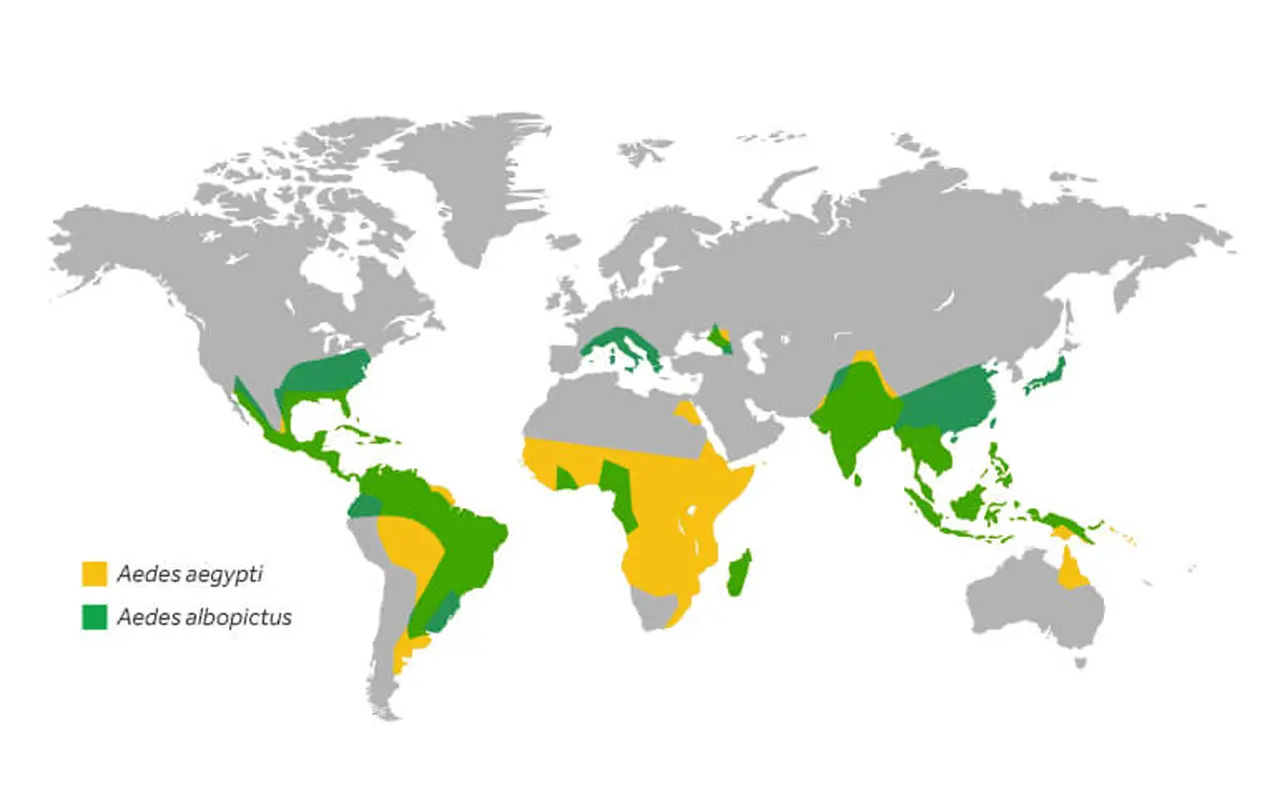Dengue: Virus Protection and Disease Symptoms
Dengue is a deadly virus that is caused by the bite of a mosquito infected with any one of four dengue virus serotypes. Every year, the disease affects up to 390 million[1] people around the world.
Powered by the SC Johnson Center for Insect Science®
The World Health Organization estimates that approximately half of the world’s population is now at risk of Dengue.1 Understanding the disease and how it’s transmitted can give you the confidence you need to help protect yourself—and your loved ones.
How to prevent Dengue
Without an adequate vaccine to prevent infection, the most effective protective measure against the dengue virus (also known as dandy fever or breakbone fever) is to avoid mosquito bites, which means disrupting their breeding cycle near the home. You can take charge and help protect your family’s health by following the tips below.
Secure your home
Getting rid of standing water in and around the home is key to reducing egg-laying opportunities for mosquitoes.
Cover up with clothing
Wearing long sleeves, long pants, and close-toed shoes with socks, especially when outdoors, can help reduce mosquito bites. Also consider wearing clothing treated with permethrin, an insecticide designed to kill or repel mosquitoes.2
Our commitment to fighting dengue
For over 60 years, researchers at the SC Johnson Center for Insect Science™ have been dedicated to insect science research to better understand and manage insects that may carry diseases such as dengue, malaria, West Nile virus, and Zika.
Where do Dengue outbreaks occur?

This map represents an estimate of where Aedes aegypti and Aedes albopictus mosquitoes are commonly found. It is not meant to represent the risk for spread of disease
Dengue occurs primarily in tropic and sub-tropic areas where Aedes aegypti and sometimes also Aedes albopictus mosquitoes live. Outbreaks usually occur during seasons when Aedes mosquito populations are high, often when rainfall is optimal for breeding. Although rare, dengue may be introduced into areas by travelers who become infected while visiting other areas of the tropics where dengue commonly exists.
Signs and symptoms of Dengue3
- High fever up to 40°C (104°F)
- Increased fatigue
- Severe headache
- Pain in the body, especially behind the eyes and joints
- Red spots appear on the skin
Dengue Hemorrhagic Fever (DHF) is a more severe form of the dengue infection that can be fatal if unrecognized and not properly treated in a timely manner. Its sufferers also experience vomiting, bleeding, severe abdominal pain, cold in the legs and arms, blue lips, or a decrease in blood pressure.
Find solutions for mosquitoes
Sources
Disclaimer
This section is provided for your information only and is not intended to provide a diagnosis or treat any medical problems. Contact your doctor if you feel any complaints or symptoms for a complete diagnosis and proper dengue fever treatment.
Related

Zika Virus: Symptoms & Prevention
Zika is most commonly spread through bites from infected mosquitoes and can cause fever, rash, joint pain, conjunctivitis and birth defects. Learn how to help protect your family from this mosquito-borne disease.

West Nile Virus: Symptoms, Treatment & Prevention
West Nile virus is most commonly spread to humans when bitten by an infected mosquito. Learn about the symptoms of West Nile virus and how to help protect your loved ones from this mosquito-borne disease.

7 Fascinating Mosquito Facts
Mosquitoes are best known for their itchy bites and ability to spread disease. But there is a lot more to these pests. Get the facts about mosquitoes — from when they’re most active to how they find you.

